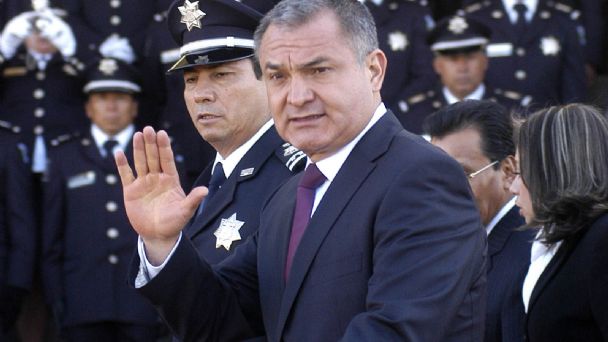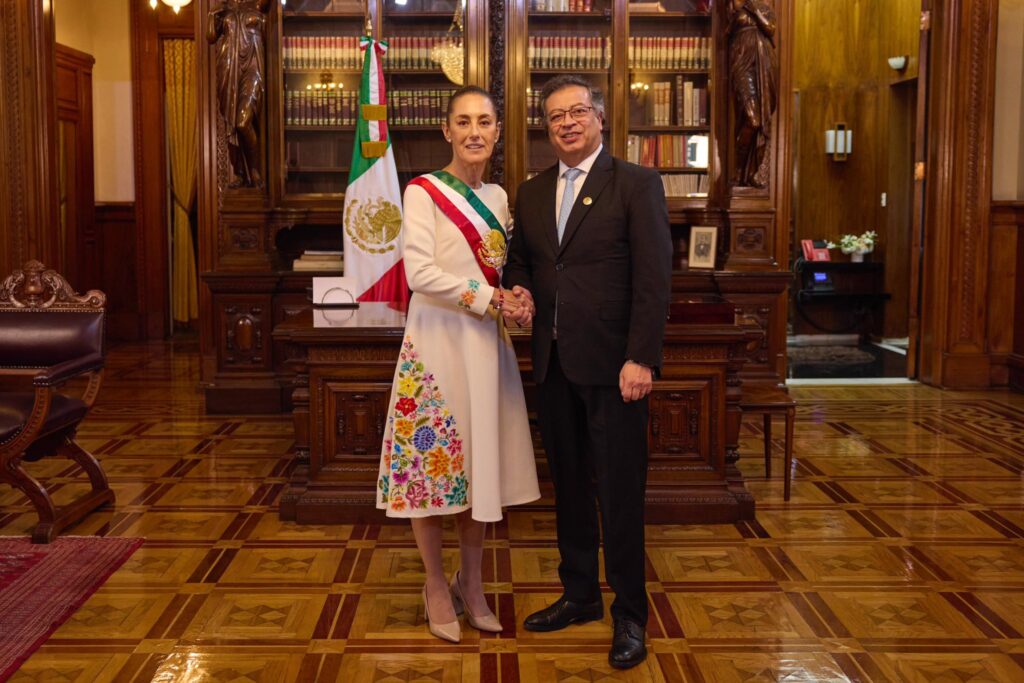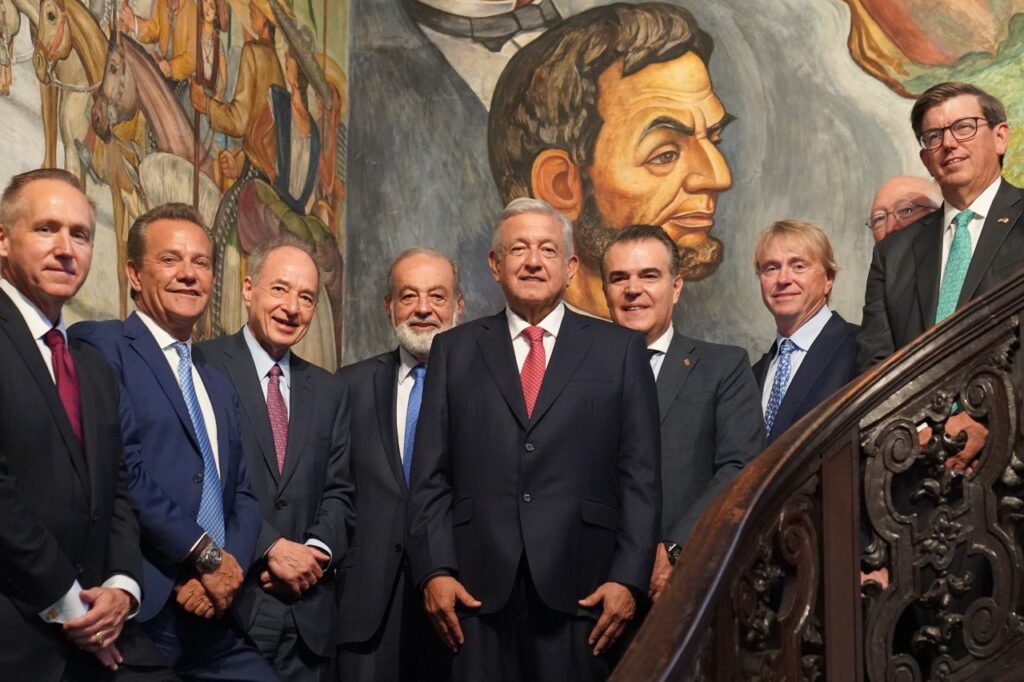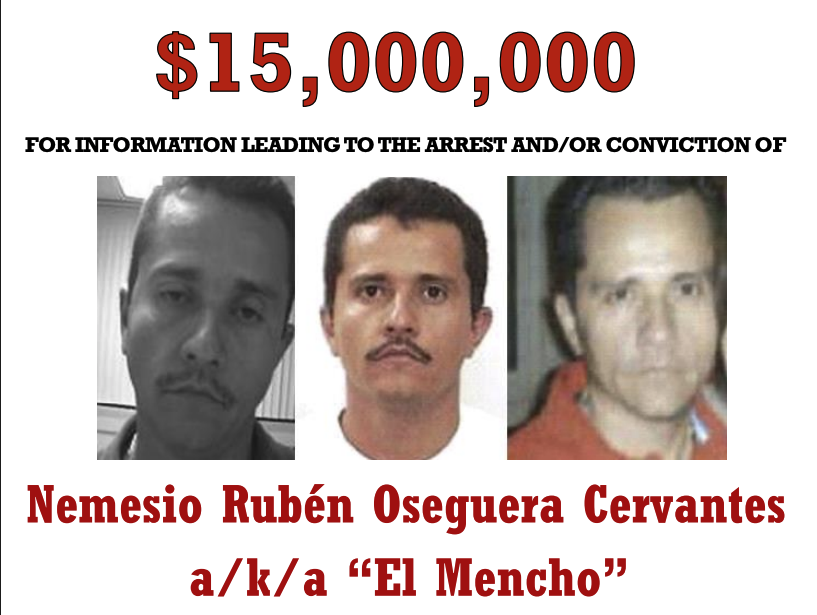Mexico City, Mexico — Opening arguments began on Monday in the trial against Mexico’s former security chief, Genaro García Luna, who United States prosecutors allege worked with the Sinaloa drug cartel, helping them to smuggle over 50,000 kilos of cocaine into the U.S.
Sitting in a Brooklyn courthouse, Mexico’s former “supercop” — as he came to be known during his tenure as head of the Federal Police under former President Felipe Calderón — is facing charges of conspiracy to traffick cocaine and making false statements.
If convicted, García Luna could face a minimum of 20 years and a maximum of life in prison.
Presiding over the case is Judge Brian Cogan of the United States District Court for the Eastern District of New York, the same judge that presided over the trial of Sinaloa Cartel boss Joaquín “El Chapo” Guzmán-Loera in 2019. Guzmán-Loera is serving a life sentence in the supermax facility in Colorado.
After his arrest in December 2019 in Dallas, Texas, Garcia Luna’s trial had been delayed several times by appeals.
The United States v. Genaro García Luna
According to prosecutors, García Luna exploited his position as the head of Mexico’s police force to empower the Sinaloa Cartel and facilitate drug shipments to the U.S.
In 2020, the U.S. Department of Justice reported that in exchange for millions of dollars in bribes, García Luna granted safe passage of drug shipments from the cartel, provided sensitive law enforcement information about investigations into their criminal activity, and also provided them with intelligence on rival drug gangs.
U.S. authorities documented that between 2002 and 2007, García Luna allegedly aided at least six cocaine shipments totaling more than 50,000 kilos, services the cartel allegedly paid with millions of dollars.
“As alleged, for nearly two decades García Luna betrayed those he was sworn to protect by accepting bribes from members of the Sinaloa Cartel to facilitate their crimes and empower their criminal enterprise,” said U.S. Attorney Seth D. DuCharme.
According to investigators, García Luna’s relationship with Mexico’s largest drug cartel began in 2001, coinciding with his rise in prominence in government.
The “supercop”
Local media have reported extensively on García Luna’s rise to prominence — from his years as an impoverished adolescent in Mexico City working as a police informant. By 1989, he would be hired by the Center for Research and National Security (CISEN), Mexico’s former intelligence agency where then 21-year-old García Luna would establish ties with the military, politicians, and police officers.
It wasn’t until the administration of President Calderón (2006 to 2012), when García Luna was appointed as the Secretary of Public Security — which controls the Federal Police– that his name would become forever entwined with the country’s embattled and enduring security strategy against drug cartels.
Mexico’s “War on Drugs,” launched by Calderón and García Luna, would introduce a prolonged, militarized offensive against organized crime in the country, leaving 60,000 people dead by the end of Calderón’s term, and violence that persists today. (Although current President Andrés Manuel López Obrador announced the end of the Drug War, the militarized strategy of combating drug cartels remains in place, and over 26,000 murders took place in 2022.)
After Calderón’s administration ended in 2012, García Luna retired to Florida, where he lived comfortably until his arrest in Texas on December 10, 2019.
Calderón has denied knowing his security chief was working with drug trafficking organizations.
Seized money should be returned to Mexico: AMLO
In the days leading up to Monday’s proceedings, President López Obrador discussed the trial during his daily press conferences.
“Let’s not get ahead of ourselves,” he said.
“How do you make so much money in six years? We are talking about houses in the United States and yachts. How? Why so much success?” he asked, referring to the former security chief.
López Obrador said that the trial’s outcome should shed light on who benefited from the money amassed by García Luna and if other authorities are involved.
He also made clear that any money seized during investigations should be returned to his country.
“Money from Mexico has to return to Mexico. Even if the trials are taking place in the United States, they have to return the money to us,” he said.
He also said that the court case should pave the way for U.S. authorities to “shake up” agencies such as the Drug Enforcement Agency (DEA) and the Central Intelligence Agency (CIA), for their involvement and possible awareness in García Luna’s activities.
“A major issue, which will also come to light, is the links with foreign agencies. The DEA, the CIA, the U.S. government, because I understand that they rewarded [García Luna] and he made agreements with U.S. authorities,” he said.
“All this is what is going to be discussed and for us, that is my point of view, it is very important that this will help to stop corruption and above all impunity.”









